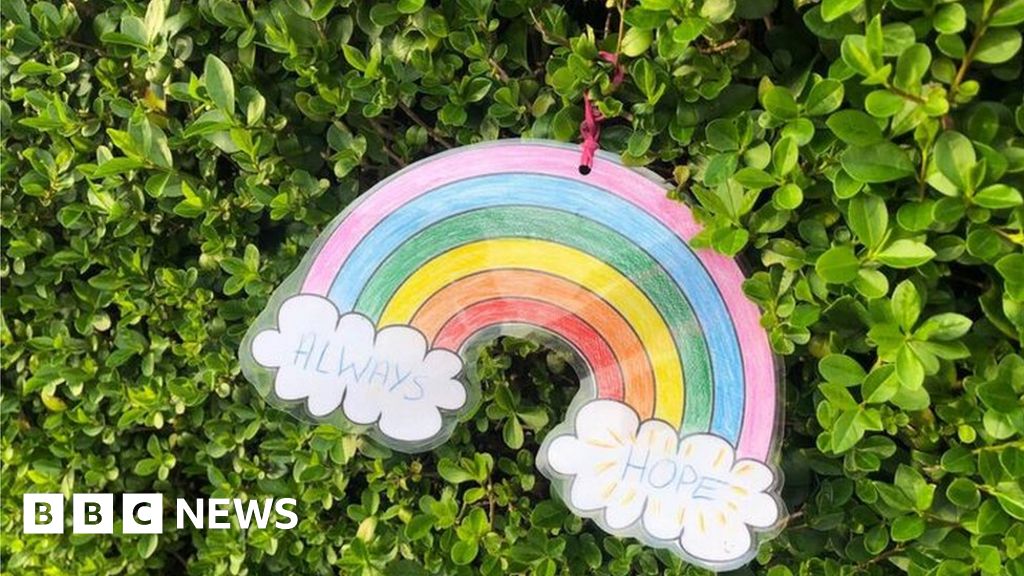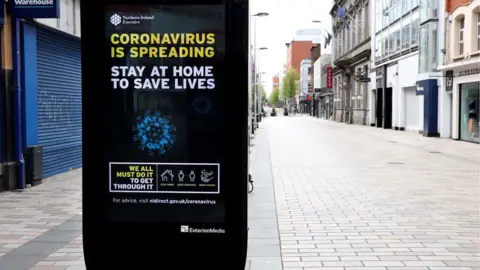 Pacemaker
PacemakerIt has now been 100 days since the first case of Covid-19 was confirmed in Northern Ireland.
Businesses closed their doors, remote-working and home-schooling became a new normal, video meetings and quizzes soared in popularity – and many people’s lives changed forever as loved ones died.
BBC News NI looks back at how the pandemic has affected Northern Ireland.
‘Biblical proportions’ warning
Late February feels like a world away – many of us had broken our New Year’s resolutions and were still going about our daily lives as normal, albeit with growing concern about ski trips or Easter holidays as the seriousness of the new virus became apparent.
The woman in question had returned from northern Italy with a child, travelling to Northern Ireland via Dublin. Italy was the first European country to impose a lockdown – following virus outbreaks in northern regions – on 9 March.
Health Minister Robin Swann warned the impending surge of coronavirus-related deaths could be “of biblical proportions”.
Mr Swann said the “nightmare, worst-case scenario” was that in the case of an 80% infection rate, Northern Ireland’s death toll could reach 15,000.
According to the latest report from the Northern Ireland Statistics and Research Agency (Nisra) – up to 29 May – that figure is 757.
The Department of Health, which releases daily figures, had recorded 528 deaths in total – more than 200 fewer – by the same date.
Nisra records all fatalities where Covid-19 is mentioned on a death certificate whereas the department’s figures are mostly comprised of hospital deaths.
In the Republic of Ireland, the death toll stands at 1,670.
School’s out for summer… in March
 Getty Images
Getty ImagesThe Republic of Ireland closed schools, colleges and other public facilities on 12 March.
Life changed overnight for university students across the island of Ireland too.
Third-year nursing and midwifery students due to qualify within six months were told they would be redeployed to clinical care duties.
About 230 final-year medical students at Queen’s University joined the medical register four months early.
 James Cutlan
James CutlanBy 3 April, Nisra had recorded 85 deaths.
Belfast’s SSE Arena, which normally hosts concerts and sporting events, became an NHS staff testing site. The City Hospital’s tower block was turned into a 230-bed unit for critically-ill patients.
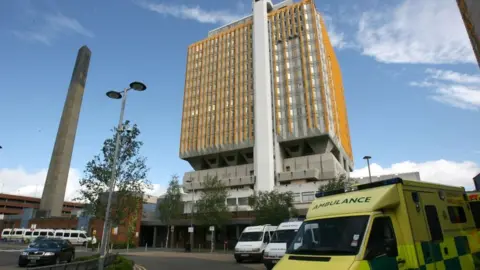 PA Media
PA MediaBelfast’s Nightingale Hospital was stood down – temporarily – on 13 May, having housed some 30 Covid-19 patients in intensive care during its busiest period.
Gloves and masks
Before the crisis, few of us had heard of PPE.
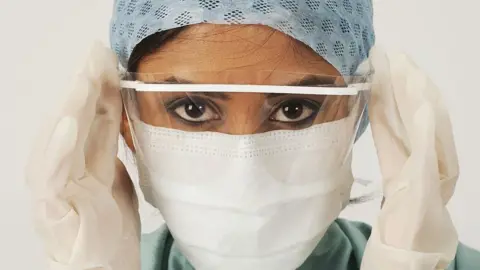 Getty Images
Getty ImagesBut we quickly became aware about concerns that Personal Protective Equipment – safety equipment that includes the likes of gloves, masks and aprons – was in short supply.
Care home crisis
 Getty Images
Getty ImagesTackling the virus in care homes has been a major issue.
Furlough for long?
For many businesses, it has been a difficult and uncertain time.
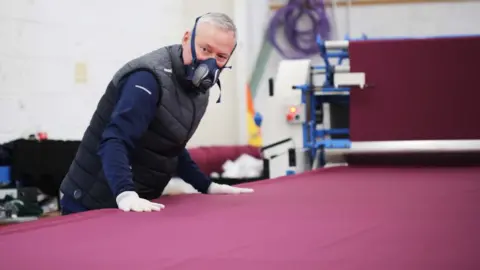 Lorcan Doherty/O’Neills
Lorcan Doherty/O’NeillsStay home or stay alert?
Allow Twitter content?
Nisra had recorded 599 deaths recorded by 8 May and, as Northern Ireland enjoyed an early summer heatwave, the Stormont executive urged people to be patient about plans to ease the lockdown.
The Pathway to Recovery was announced on 12 May but, unlike plans announced in England and the Republic of Ireland, Northern Ireland’s five-stage blueprint did not include a timetable.
First Minister Arlene Foster said lockdown-easing measures would be based on scientific and medical advice.
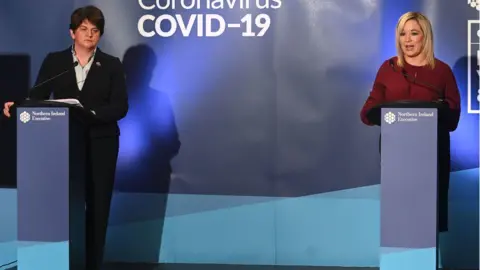 Pacemaker
PacemakerFrom the beginning of the pandemic, the DUP leader and her Sinn Féin counterpart, Deputy First Minister Michelle O’Neill, said that they would be united in their goal to save lives despite their “diversity of views”.
“We’re no different to anybody else, we find it as hard as everybody else,” said Ms O’Neill.
Clap for carers
For the past 10 weeks, the place to be on a Thursday evening has probably been your front doorstep.
You may have taken a nervous glance out of the window at 19:59 to make sure you weren’t the only household in the street venturing out with pots and pans to celebrate the work of frontline workers
From donating to food banks and volunteering to deliver medicine, many people have pulled together to try to ease the strain on those struggling during the pandemic.
There’s also been new life too, like little Jenson Jay Hooks who was born at Antrim Area Hospital at the beginning of May.

A new normal?
If the last 100 days have been anything but normal, it looks like the next 100 will see a gradual return to a normality of sorts – although life as we knew it may never be the same.
Northern Ireland was the first of the four UK administrations to roll out a contact tracing programme, as part of its plans to tackle coronavirus.
It aims to identify and alert people who have come into contact with a person infected with coronavirus.

Hotels and tourist accommodation in Northern Ireland will be allowed to reopen on 20 July.
So, while we remember the hardships faced by many at the beginning of the pandemic, here’s hoping there is at least some light at the end of all those rainbows.




